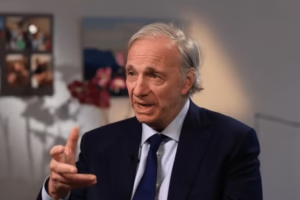Human beings thrive on connection. Having an intimate partner often provides emotional stability, comfort, and a sense of security. But not everyone has someone they can lean on in difficult times. Psychology suggests that living without such an emotional anchor shapes habits, coping mechanisms, and even identity.
Importantly, this does not mean individuals without partners are broken or destined for loneliness. Rather, it highlights the adaptations people make when navigating life without a companion to share their emotional burdens.
Here are six habits psychologists often observe in people who lack a partner to emotionally lean on.
1. Turning Inward for Emotional Regulation
A partner often acts as a regulator of emotions, offering reassurance or perspective during stress. Without this, people typically rely on self-regulation.
They may journal, ruminate, or immerse themselves in hobbies to process emotions. Some master self-soothing techniques such as breathing exercises, distraction, or mindfulness. While this independence fosters resilience, it can also lead to overthinking and emotional bottling, since external feedback is missing.
2. Building Routines for Predictability
Relationships provide not only support but also a rhythm of predictability. In their absence, individuals often turn to structured routines.
This might include strict exercise schedules, carefully planned meals, or regimented work-rest cycles. Psychology calls this the need for cognitive closure—the desire for order to reduce uncertainty. These routines create stability, though they may sometimes feel restrictive, serving as a substitute for intimacy.
3. Over-Investing in Friendships or Work
Humans are social by nature. Without a partner, people often seek deeper fulfillment in other areas, such as friendships or careers.
This can look like becoming the “go-to friend,” placing heavy emotional expectations on colleagues, or immersing fully in professional achievements. While these strategies can bring satisfaction, they may also cause imbalanced relationships, burnout, or blurred boundaries if the emotional load becomes too great.
4. Adopting Hyper-Independence
Some individuals embrace what psychologists call defensive independence—a belief that they must stand entirely on their own because no one else will catch them.
This often shows up as:
- Refusing to ask for help.
- Carrying emotional burdens alone.
- Equating vulnerability with weakness.
Rooted in attachment theory, this pattern can mask an unspoken desire for care. Though it projects strength, hyper-independence can limit openness and intimacy, reinforcing a cycle of isolation.
5. Finding Substitutes for Intimacy
When direct emotional support is missing, people often turn to substitutes.
This may include bonding deeply with pets, engaging in online communities, or developing parasocial connections with public figures and fictional characters. Psychologists refer to this as compensatory attachment—filling the gap with symbolic alternatives. While these substitutes can provide comfort, they may also discourage the pursuit of deeper, reciprocal relationships.
6. Developing Heightened Self-Awareness
Without a partner as a mirror for feedback and perspective, many individuals become more introspective.
They might analyze their emotions more deeply, invest in therapy, or explore mindfulness practices. This self-awareness—known as metacognition—can drive personal growth. Yet, it sometimes turns into excessive self-focus or self-criticism, leaving individuals trapped in cycles of over-analysis.
The Double-Edged Sword of Solitude
These habits reveal both resilience and challenge. People without a life partner often develop independence, discipline, and self-knowledge, but may also face struggles with overthinking, loneliness, or limited vulnerability.
Psychology underscores that humans are not wired to face emotional struggles entirely alone. Still, it also demonstrates the remarkable adaptability of the human mind, which finds new ways to cope, connect, and build meaning even in solitude.
Conclusion
Living without a partner does not mean being less complete. Instead, it highlights how coping strategies shift in the absence of an intimate relationship. People create routines, rely on self-regulation, lean on friends or work, build substitutes for intimacy, and sharpen their self-awareness.
Some of these strategies strengthen resilience, while others present new challenges. Ultimately, whether partnered or single, the greater task is to face life with honesty, adaptability, and openness to connection—in whatever form it appears.














